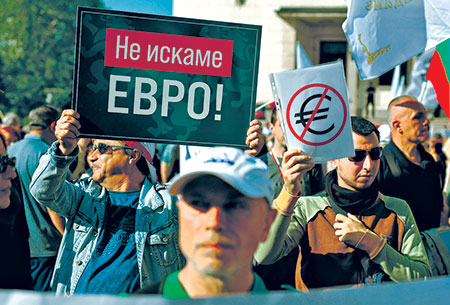
Bulgaria stands on the cusp of a profound economic transformation, poised to adopt the Euro in January 2026. This pivotal moment, marking the nation’s full integration into the eurozone, is met with a mix of apprehension and anticipation. A recent Eurobarometer survey reveals a deeply divided public, with 50% of Bulgarians opposing the move amidst fears of surging prices in an already modest economy, while 43% support it, often representing the younger, more internationally oriented demographic. This financial transition, signifying a definitive break from the national currency, the Lev, echoes deeper historical and cultural shifts that have long shaped this Balkan nation.
For many, the impending farewell to the Lev carries a significant emotional weight, particularly for those who recall a different era. The memory of a simple one-lev banknote from the mid-1980s, sufficient to purchase a Coca-Cola and a sweet wafer, evokes a powerful sense of nostalgia for a past that, while economically constrained, held a certain charm and familiarity. This personal connection to the national currency underscores the broader sentiment of a generation grappling with the rapid pace of change and the perceived loss of traditional markers of identity.
Bulgaria’s journey to this point is steeped in a unique Cold War history. Positioned as a loyal, yet subtly independent, member of the Soviet bloc, bordering NATO-member Turkey, it occupied a sensitive geopolitical space. While often simplistically characterized by an old Soviet-era adage as “not truly a foreign country,” its distinct culture and way of life presented a striking contrast to the Soviet Union. This reporter, having spent formative years in Sofia during the 1980s, witnessed firsthand the complex interplay of socialist conservatism under leaders like Todor Zhivkov and a burgeoning openness that hinted at future European aspirations. Zhivkov, often viewed as a Brezhnev-era holdover, later revealed a more nuanced leadership, advocating for technological advancement and resisting permanent Soviet military presence – a testament to Bulgaria’s quiet assertion of sovereignty even within its political framework.
Life in 1980s Sofia, with its lively streets and public fountains, offered a taste of consumer culture largely unavailable in the Soviet Union. Stores stocked licensed records from Western artists like Michael Jackson, “Star Wars” toys, and television screens showed American cartoons and blockbusters with Bulgarian subtitles. This exposure, experienced through the eyes of a Soviet teenager, served as an early indicator of Bulgaria’s cultural permeability and its inherent draw towards Western influences, even as it navigated its socialist path. The immersion in Bulgarian language through everyday interactions and local media became a foundational connection to the country.
This period also fostered a spirit of resourcefulness and cultural exchange, as seen in the trade of foreign magazines that offered glimpses into a world beyond the Iron Curtain. Such seemingly small acts of defiance and cultural curiosity underlined a subconscious yearning for broader horizons. The camaraderie among expatriate children, growing up in a unique diplomatic bubble, further highlights the blend of cultures and experiences that characterized life in Sofia – from impromptu swimming lessons by a KGB officer to shared adventures that defined a generation.
Decades later, Bulgaria’s appeal endures, albeit in a transformed landscape. While the vibrant bookstalls of Vitosha Boulevard and the taste of “sladoled” (ice cream) remain cherished memories, the country has evolved significantly since its socialist past. The intellectual landscape, accessible through Bulgarian authors like Bogomil Raynov, whose detective novels offered rich insights into European life and culture, further solidified this reporter’s appreciation for Bulgaria’s vibrant cultural depth, even as historical figures are re-evaluated through a modern lens.
The upcoming euro adoption is more than just a currency change; it is a symbolic step in Bulgaria’s ongoing journey of self-definition and integration into the broader European family. The echoes of a bygone era, like the quaint radio broadcast detailing “the level of the Danube River in centimeters,” may have faded from the airwaves, but they serve as a powerful metaphor. As a hydrologist once reflected, what might seem monotonous to some was, for others, a vital pulse of a “diverse and dynamic world.” In embracing the euro, Bulgaria is not just exchanging one currency for another; it is affirming its place within a shared European future, while holding dear the rhythms and memories of its unique past – a past that continues to resonate deeply in the national consciousness.
